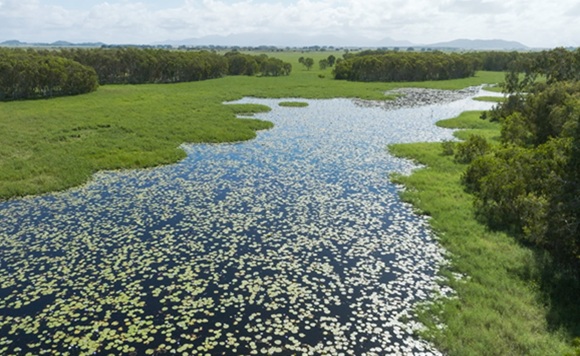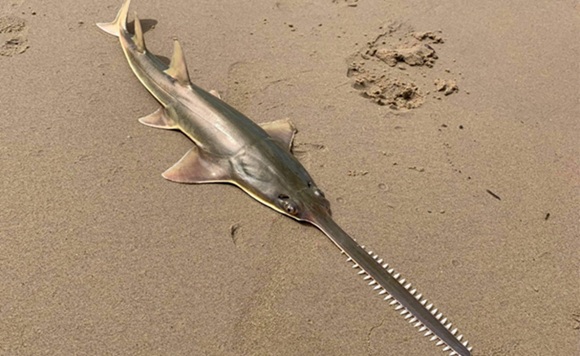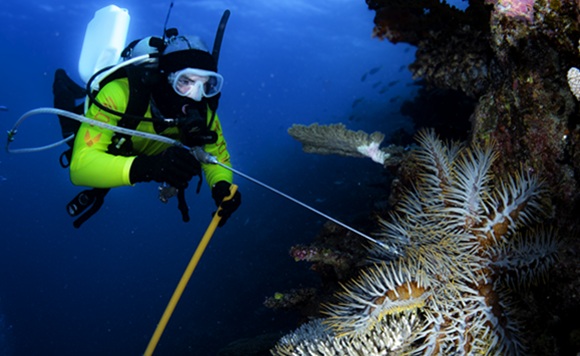
Mungalla: Healing the Herbert
Owners of Mungalla in the Herbert catchment are helping bring wetlands back to life
Healthy waterways underpin our lifestyles and livelihoods. When waterways thrive, so do we.
Cyclone Jasper leaves lasting mark on Wet Tropics waterways
The devastating impacts of Severe Tropical Cyclone Jasper are a key focus of the 10th annual Wet Tropics Waterway Health Report Card, released today by Wet Tropics Waterways.
Chair of Wet Tropics Waterways, Simon Costanzo, said this year’s report card highlights the compounding effects of a major natural disaster on waterway health.
“More than two metres of rain fell across the Daintree, Mossman and Barron catchments after Tropical Cyclone Jasper made landfall near Wujal Wujal in December 2023,” Dr Costanzo said. “This prolonged and intense rainfall broke records, triggered landslides and caused widespread flooding.
“This is the first time in the report card’s 10-year history that we’ve been able to capture the widespread environmental impacts of a natural disaster across the entire region.”
In the immediate aftermath of the cyclone, satellite imagery showed significant flood plumes emerging from northern river mouths, while water quality monitoring revealed high loads of dissolved inorganic nitrogen transported by most rivers as pollutants were flushed off the land.
Dr Costanzo noted that while extreme rainfall is a natural feature of the Wet Tropics, climate change is increasing the intensity and frequency of these events.
“It takes time to fully understand the scale and lasting effects of such an event. Floods are part of our region’s natural cycle, and our waterways are constantly evolving, but extreme events like Jasper can dramatically alter ecosystem function,” he said.
“Landslides have inundated rivers with sediment, and inshore reefs and seagrass beds have been smothered. Many species have adapted to very specific microhabitats and when those are lost, populations can be wiped out.”
He said landslides and streambank erosion could continue to degrade water quality, particularly in areas lacking vegetation to stabilise the soil. The spread of invasive species — such as aquatic weeds and pest fish — also poses a growing threat in the aftermath.
Coral communities across the region were severely impacted during 2023–24, with Tropical Cyclone Jasper affecting the north and Tropical Cyclone Kirrily impacting the south.
“Coral is particularly vulnerable to changing conditions,” Dr Costanzo said.
“While bleaching is usually associated with marine heatwaves, in this case it was caused by freshwater flooding and reduced salinity. At Snapper Island, off the Daintree coast, all coral on the southern reef was lost. In the northern zone, average coral cover plummeted from 51 per cent to just 21 per cent.”
Minister for the Environment and Tourism, Minister for Science and Innovation Andrew Powell said the Queensland Government is committed to helping communities across the state improve the health of local waterways.
“I would like to thank everyone involved in these report cards for their dedication to making a difference for all Queenslanders,” Minister Powell said.
“Improving water quality takes a collaborative approach between all levels of government, scientists, industry and the agricultural sector, conservation groups and local communities.
The Queensland Government is proud to support your ongoing efforts with an investment of $1.25 million annually into five regional waterway report card partnerships.
“This long-term commitment with the support of the federal government will deliver significant improvements for our ecosystem and help secure the future of the Great Barrier Reef.”
The 2025 Wet Tropics Waterway Health Report Card assesses the health of nine river basins from the Daintree to the Herbert in the Ingham region. It is released annually by Wet Tropics Waterways as part of the Reef 2050 Water Quality Improvement Plan – a joint initiative of the Australian and Queensland governments to protect the Great Barrier Reef’s water quality.
The report card draws on scientific monitoring data from multiple organisations and is reviewed by an independent scientific panel.
Wet Tropics Waterways is a partnership supported by the Queensland and Australian governments, local councils, industry, community groups and other stakeholders, including host organisation Terrain NRM.

Owners of Mungalla in the Herbert catchment are helping bring wetlands back to life


Marine biologist Rickard Abom shares his experiences of the Great Barrier Reef

Martine joined the Wet Tropics Waterways team as a Science Technical Officer in early 2024. She is an environmental scientist and ecologist and has worked on water quality and aquatic ecology projects as a consultant and in private industry for over 20 years. She is using her experience in statistical programming and database development to develop new systems for the Report Card.

Louise joined Wet Tropics Waterways as Executive Officer in 2025.
Louise Hateley is an environmental scientist with over 20 years of experience in natural resource management, water quality, and catchment modelling across government, research, and community sectors. She has held senior scientific and project coordination roles with the Department of Natural Resources, Mines and Energy and Terrain NRM, leading projects focused on GBR catchment health, waterway management, and sustainable land use. With a record of published research, stakeholder engagement, and project delivery, Louise combines scientific expertise with practical leadership to drive initiatives that protect the Wet Tropics and support community collaboration.

Simon has over 30 years’ experience advocating for waterways across academia, government and the private sector. He started out in marine botany with a fascination for seagrass, mangroves and macroalgae, and has gone on to lead major environmental initiatives both in Australia and overseas. He has established report cards in eight countries.

Richard has been the Science Technical Officer for Wet Tropics Waterways since 2016. His role involves producing the annual results for the waterway health assessment of the wet tropics region using data from a wide range of sources, to present as scores and grades, as well as developing new indicators to address knowledge and monitoring gaps. He works in collaboration with technical staff at other regional report cards.
Richard has a background in freshwater ecology research projects and environmental assessments with CSIRO, University of Queensland, Queensland Government and as a consultant. For a long time he’s been interested in freshwater aquaculture and continues this interest through farming freshwater crayfish, alongside other farming activities.